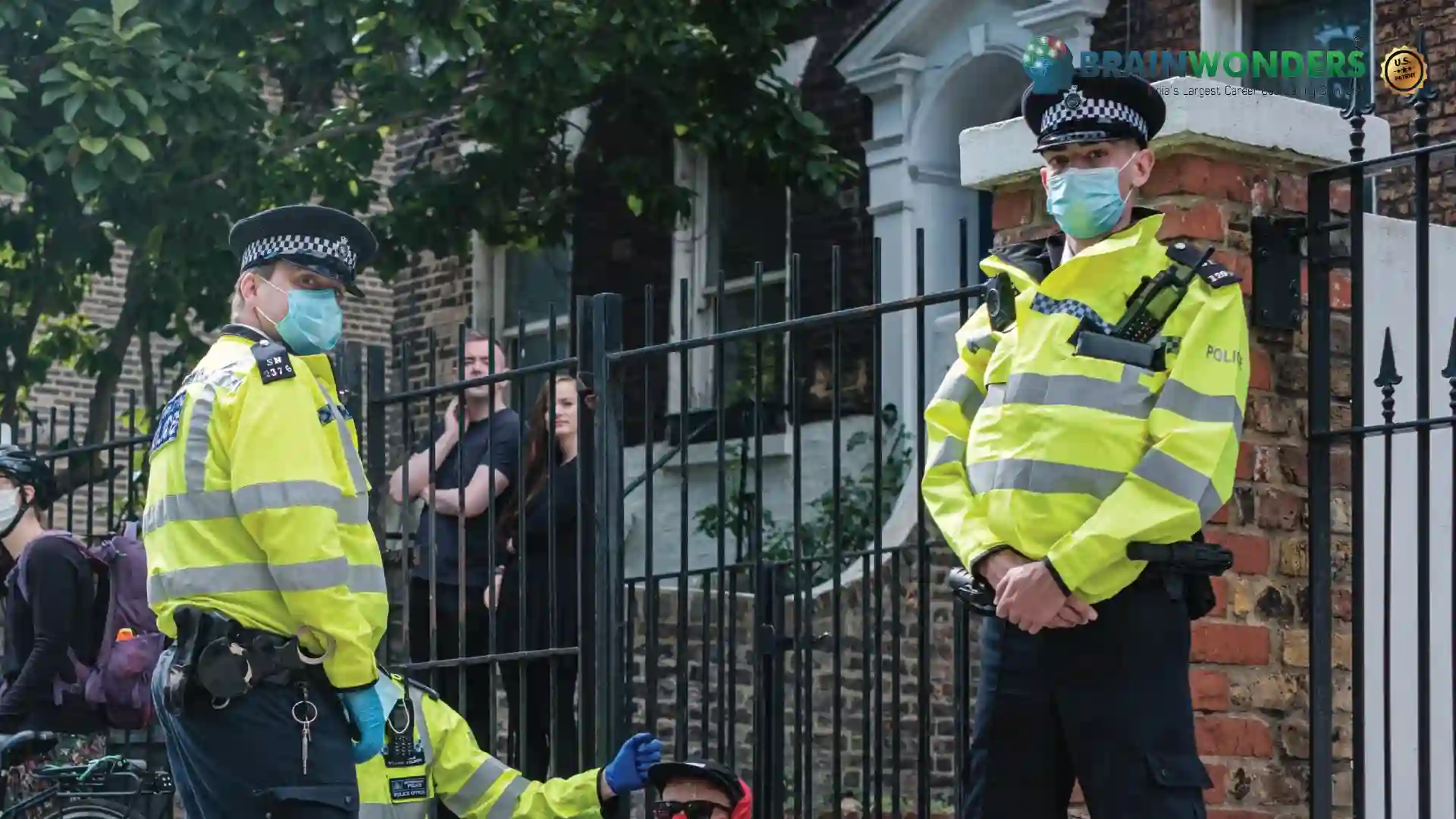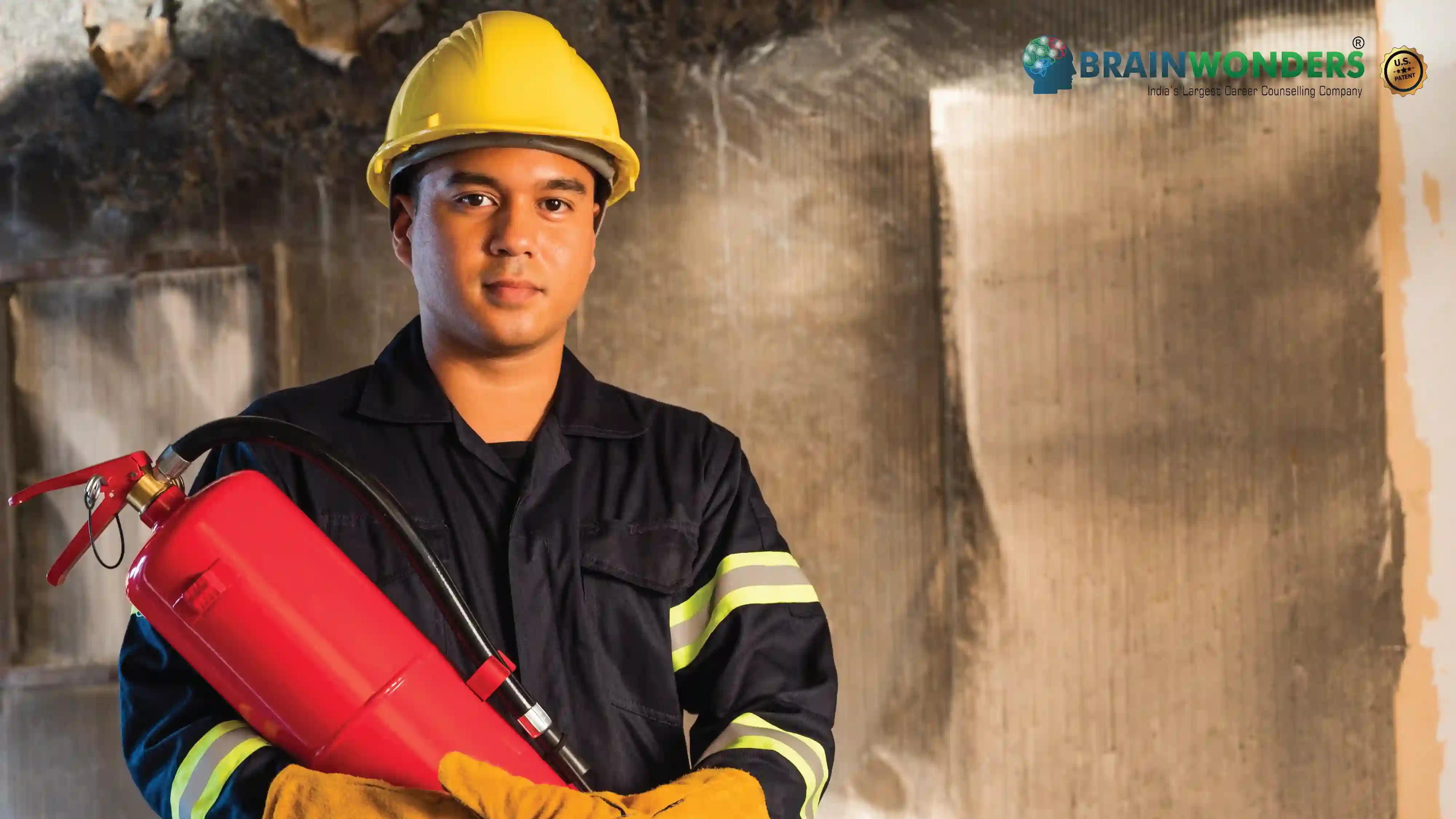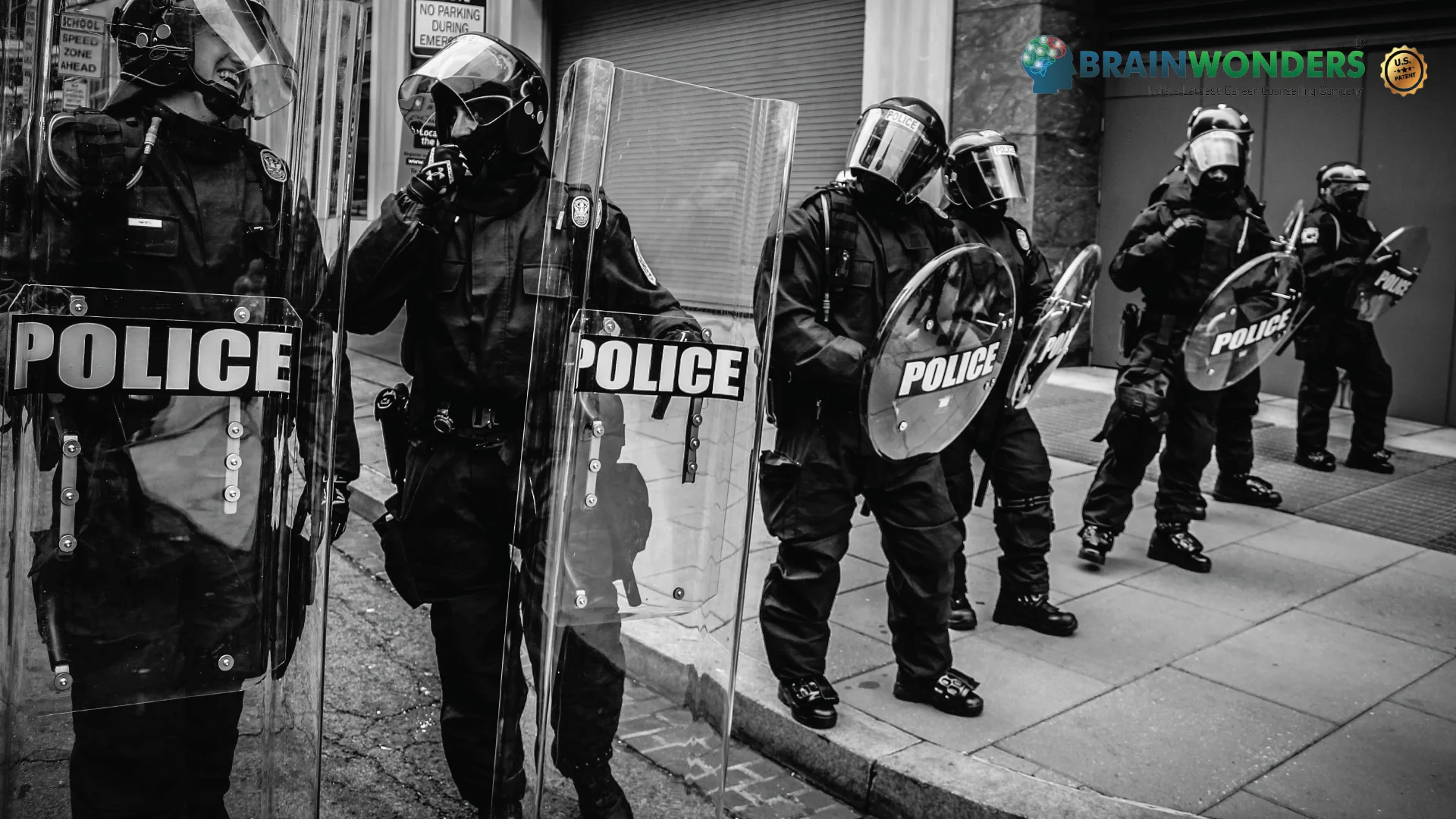How to become a Police Detective
Overview, Courses, Exam, Colleges, Pathways, Salary

Overview
Who is Police Detective ?
An individual who is responsible for overseeing and coordinating a criminal investigation, along with offering guidance and expertise to solve it is known as a police detective. They are people who are hired by individuals or a group to investigate in various situations. They are often hired to find missing people, gather information, conduct surveillance to gain confidential information as well as to cooperate in solving crimes. They also ensure that the entire investigation is conducted according to laws and regulations. It is one of the most prestigious career choices in the society. They on the other hand, are very passionate about serving the country and society. The profession as a police detective requires a great physique as they are mostly involved in field work. They usually work in collaboration with other public service organizations like court officers, community groups, and local businesses. Police detectives can also work individually with private clients, corporations as well as investigation firms. They need to maintain logs for reports as well as detailed records that are way crucial in their detective's job as they need to present evidence.
Typical day at work
What does Police Detective do?
The role and responsibilities of a police officer are as followes:
- Interviewing the suspects and taking down their statements for references or evidence for the court.
- Need to maintain logs for future reference align with writing reports for court room cases as evidence.
- Gather evidences for a case, then deal with their paperwork along with submitting it to the court.
- Taking interviews of the people to gather information related to an investigation.
- To verify facts that are already known as information about an individual or a case.
- To look into crimes of IT sector as well as unfold computer bases thefts.
- Dig in to the previous records to uncover clues or references.
- Also conduct Survillnce on probable suspects as well as witnesses.
Abilities and Aptitude needed
What are the skills, abilities & aptitude needed to become Police Detective?
- The career as a police detective requires a few mandatory skills that must be present to function well in this job. One of the most important ones are the active listening skills, as their job role requires them to be more auditory in nature to make notes for their investigations. This will also help them in asking relevant questions to their research and not interrupting the other person at inappropriate times. they also need a great sense of coordination to adjust their actions according to the team's actions.
- The ability to think critically is also required, as the use of logic and reasoning is required to get to the bottom of the case as well as to deal with the suspects if required. They must have a bold and daring personality along with great thinking ability, observation skills, decision making capabilities, communication skills as well as problem solving skills.
- They need to be very attentive,understanding, have a sound judgement, possess time management skills along with being responsible. Apart from this an additional skill set required is a thorough knowledge about laws that are being implemented in the country.
Salary
Salary for Police Detective?
Salary of Police detectives is as follows :
- Minimum Monthly Salary: The minimum monthly salary for an entry-level police detective may vary based on the region, department, and experience level. It could range from INR 25,000 to INR 40,000 or more in India.
- Maximum Monthly Salary: Highly experienced and skilled police detectives, especially those in senior positions or with specialized training, may earn a monthly salary ranging from INR 70,000 to INR 1,00,000 or more.
- Annual Salary: The annual salary for entry-level police detectives could be approximately INR 3 lakhs to INR 5 lakhs per year. Experienced and well-qualified detectives may earn a maximum yearly salary ranging from INR 8 lakhs to INR 12 lakhs or more.
- Highest-Paying Jobs and Scope: The highest-paying jobs for police detectives are often found in specialized units, such as homicide, narcotics, or organized crime divisions. Advancement opportunities exist for detectives with exemplary performance, strong analytical and investigative skills, and additional forensic science or cybercrime training. Police detectives play a crucial role in the criminal justice system by investigating and solving cases, bringing perpetrators to justice, and ensuring public safety. Their expertise and dedication contribute significantly to the effective functioning of law enforcement agencies and the overall security and well-being of the communities they serve.
Pathways
How to become an Police Detective?
Entrance Exam
Entrance Exam for Police Detective ?
Courses
Which course I can pursue?
Best Colleges
Which are the best colleges to attend to become an Police Detective?
Industries
Which Industries are open for Police Detective?
Police detectives primarily work within law enforcement, investigating and solving criminal cases. However, their specialized skills and experience can also be valuable in various industries. Here are some industries and roles where police detectives may find opportunities:
- Law Enforcement Agencies: Police detectives are an integral part of law enforcement agencies at local, state, and federal levels, where they conduct investigations and gather evidence to solve crimes.
- Private Investigative Firms: Some police detectives transition to roles in private investigative firms, where they may work on cases related to corporate fraud, background checks, or missing persons.
- Legal and Law Firms: Police detectives may work as investigators for law firms, assisting in gathering evidence for legal cases or conducting private investigations.
- Insurance Companies: Insurance companies can employ detectives to investigate fraudulent claims and assess the legitimacy of insurance-related cases.
- Corporate Security: Some corporations hire police detectives to manage security and conduct internal investigations into theft, fraud, or other criminal activities within the company.
- Risk Assessment and Security Consulting: Police detectives may offer expertise in risk assessment and security consulting for businesses and organizations.
- Government Agencies: Detectives may find roles in government agencies focused on intelligence gathering, counter-terrorism, or specialized investigations.
- Nonprofit Organizations: Some nonprofit organizations involved in criminal justice reform or victims' rights may employ detectives to conduct investigations related to their missions.
- Academic and Research Institutions: Detectives may work with educational institutions or research organizations on crime patterns, law enforcement strategies, or criminal justice policy studies.
- Forensic Laboratories: Police detectives with expertise in evidence collection and analysis may find opportunities to work in forensic laboratories.
- Cybersecurity and Digital Forensics: Detectives with skills in cybercrime investigations can contribute to cybersecurity and digital forensics initiatives.
internship
Are there internships available for Police Detective?
Internship opportunities specifically designed for police detectives may not be as common as internships for entry-level law enforcement officers. However, aspiring police detectives can still gain valuable experience through various law enforcement internships focusing on investigative work and related skills. Here are some potential internship opportunities for individuals interested in becoming police detectives:
- Law Enforcement Agencies: Interning with law enforcement agencies, such as police departments or sheriff's offices, can provide hands-on experience in various aspects of police work, including investigations.
- Criminal Investigations Unit: Some law enforcement agencies offer internships specifically within their criminal investigations unit, where interns may assist detectives with casework and evidence analysis.
- Cold Case Squads: Interning with a cold case squad provides exposure to reviewing and re-investigating unsolved cases.
- Forensic Laboratories: Interning with forensic laboratories can give aspiring detectives insight into evidence analysis and processing techniques.
- Private Investigative Firms: Some private investigative firms offer internships for individuals interested in gaining experience in private investigations, which often involve similar skills used by police detectives.
- Legal and Law Firms: Interning with law firms or legal departments of organizations can provide exposure to the legal aspects of investigations and evidence collection.
- Cybersecurity and Digital Forensics: Internships in cybersecurity or digital forensics fields can benefit those interested in the growing area of cybercrime investigations.
- Criminal Justice Programs: Internships through criminal justice programs at colleges or universities may offer opportunities to work on research projects related to investigations.
- Nonprofit Organizations: Some nonprofit organizations focused on criminal justice or victims' rights may have internship opportunities related to investigations.
Career outlook
What does the future look like for Police Detective?
Even if the crime rates start to fall drastically, the demand for the services will either maintain or improve as public safety is expected to be the priority. Although there is a constant desire for the safety of the public, the demand for more officers is expected to change depending upon a specific location. To work as a police detective they usually receive additional perks such as paid sick leaves, holidays, insurance policies, retirement plans, pensions, etc. They get many honors and privileges for solving cases. This is a decent paying job that is respected throughout the country. Their primary responsibilities cover investigating criminal acts like armed robberies, home invasions, sexual assaults, burglary, etc. They are also expected to collect evidence and testify in court along with using forensic evidence for solving crime.



